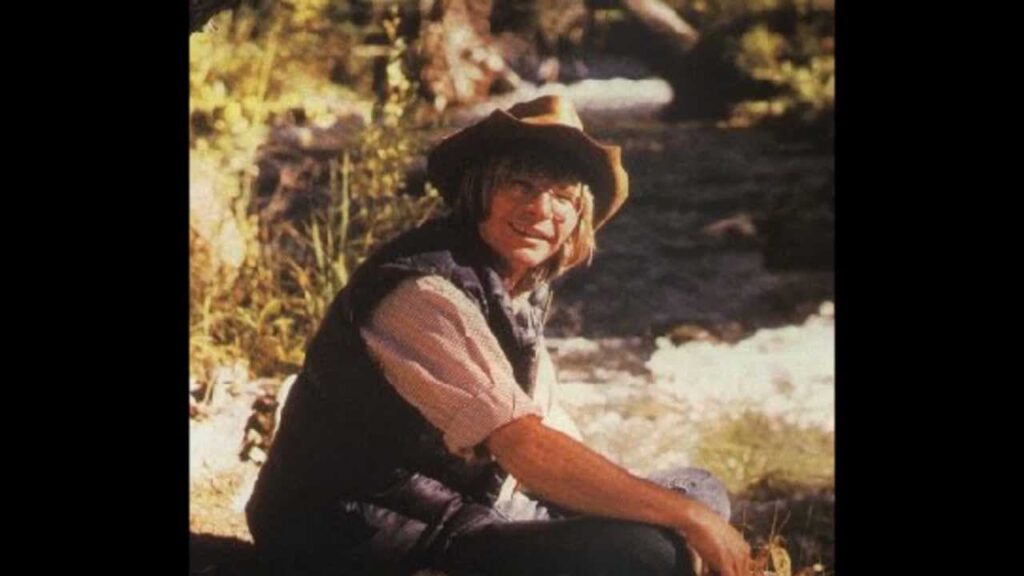
🏔️ A Lonesome Homeward Journey Under the Sprawling, Mythic Canvas of the West
The 1983 single “Wild Montana Skies” by John Denver, featuring the sublime harmonies of the incomparable Emmylou Harris, is far more than just a song; it’s a panoramic, four-minute cinematic experience, a deeply moving portrait of homecoming, loss, and the eternal, shaping power of the American West. Released in November 1983 on the RCA label, it served as the single from Denver’s album “It’s About Time”. While it may not have achieved the towering, omnipresent pop success of his earlier folk-pop anthems like “Take Me Home, Country Roads,” its impact was deeply felt within the Country and Adult Contemporary circles. Information on a specific peak on the main Billboard Hot 100 chart for this single is less prominent than its enduring legacy in other genres, though its inclusion of Country star Emmylou Harris was clearly aimed at the Country market. Its true measure of success lies in its long-term resonance: it has been consistently hailed as one of the greatest songs ever written about Montana, winning a local poll in 2013 for the “best song about Montana” and being rated among the Top 100 Western songs of all time by the Western Writers of America in 2010.
For those of us who came of age with a six-string guitar and a deep appreciation for the natural world, John Denver’s music has always been a warm, familiar fire on a cold night. By 1983, the era of “Sunshine On My Shoulders” was nearly a decade past, and Denver was shifting from pure pop stardom toward a more reflective, story-driven country-folk style—a beautiful confluence that “Wild Montana Skies” embodies perfectly.
The narrative is a deeply nostalgic, almost mythic story song, one that follows a boy’s journey from his birth in the Bitterroot Valley through his early adulthood and eventual, poignant return. The protagonist is born “in the early morning rain,” a child immediately shaped by the elemental forces of nature, but his childhood is marked by tragedy: the loss of his mother, forcing him to be raised by a taciturn but loving uncle who taught him the value of hard work under the vast, wild Montana skies. The song’s core lies in the universal impulse to leave one’s home—to go and “see what the rest of the world has to offer”—before the inevitable, soul-deep pull of that original landscape calls you back.
This is a story that speaks directly to the experience of a generation who spent their youth searching for meaning and purpose in a rapidly changing world, only to find the truest wisdom waiting where they started. The meaning of the song is rooted in the powerful, almost spiritual bond between a person and the land that raised them. The protagonist returns, not as a wealthy success, but as a man whose heart has been “tamed by the distance and time,” finally settling down, finding a partner, and embracing the tough, honest life of a rancher, his character forged by the “snow and the sun and the wind and the rain.”
What elevates this track is the seamless fusion of Denver’s earnest, clear voice—the voice we knew and trusted—with the ethereal, silver-threaded harmonies of Emmylou Harris. Their collaboration creates an undeniable, almost heartbreaking beauty, adding an aged wisdom and a quiet solemnity to the tale. It’s a track where the fiddle work and the acoustic guitar are as vital as the lyrics, painting a vivid picture of the “wild geese over the water” and the majestic, towering Bitterroot Mountains. It’s a song about how places define us, how the echoes of our past—the lessons from a beloved, departed uncle—become the quiet strength that sustains us in the present. Listening to “Wild Montana Skies” now, it feels like peering into an old, perfectly preserved photograph, reminding us that no matter how far we roam, there are places on this earth that hold the key to who we truly are. It’s a magnificent, enduring piece of Americana that captures the sweeping grandeur and the quiet, personal struggle of life in the big sky country.